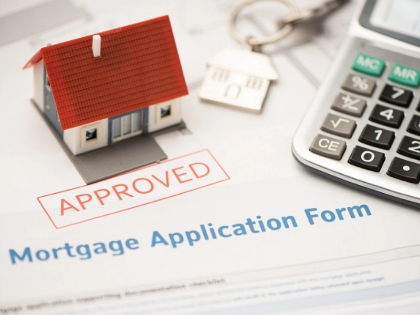Preventing Mortgage Fraud: How to Defend Yourself
Scams involving mortgages happen when thieves steal personal information from victims who are in the middle of a mortgage transaction. The name, residence, county, loan amount, and bank of the borrower are all accessible to these thieves. Homebuyers are frequently duped by scammers using attractive loan arrangements and extremely low interest rates. Additionally, they persuade homeowners to send money beforehand and provide private details.
Use of bait and switches

Relief from foreclosure
 One of the most important financial decisions that most people will ever make is buying a house. Regretfully, mortgage-related frauds are widespread and have the potential to do great harm. In order to defraud susceptible homeowners of their money, con artists impersonate lenders or government officials. They frequently make false statements regarding relevant legislation and financial matters and employ illegitimate legal defenses.
For instance, they can assert that you have no obligation to repay your home loan and that they can erase all of your debts. Particularly vulnerable to these frauds are homeowners who have fallen behind on their mortgage payments.
Scammers may even pose as representatives of the government housing aid program and offer to help you avoid foreclosure by negotiating the terms of your mortgage loan. They might, however, demand hefty upfront payments and order you to cease speaking with your lender. This is a red flag for a scam and a breach of federal law. Reputable foreclosure relief providers don't take advance payments and adhere to tight restrictions.
One of the most important financial decisions that most people will ever make is buying a house. Regretfully, mortgage-related frauds are widespread and have the potential to do great harm. In order to defraud susceptible homeowners of their money, con artists impersonate lenders or government officials. They frequently make false statements regarding relevant legislation and financial matters and employ illegitimate legal defenses.
For instance, they can assert that you have no obligation to repay your home loan and that they can erase all of your debts. Particularly vulnerable to these frauds are homeowners who have fallen behind on their mortgage payments.
Scammers may even pose as representatives of the government housing aid program and offer to help you avoid foreclosure by negotiating the terms of your mortgage loan. They might, however, demand hefty upfront payments and order you to cease speaking with your lender. This is a red flag for a scam and a breach of federal law. Reputable foreclosure relief providers don't take advance payments and adhere to tight restrictions.
Loan adjustment
 You can modify the conditions of your home loan by filing for a mortgage modification. Although it might be a useful strategy to prevent foreclosure, you should always consult a financial counselor before accepting any changes. Understanding how mortgage changes impact your credit score is also crucial.
Although it can be difficult to identify mortgage scams, you can guard against becoming a victim of these schemes if you are aware of the most frequent kinds and how they operate. Loan modification, mortgage rescue and relief scams, and closing cost scams are just a few of the various ways that mortgage fraud can manifest itself.
False documentation and large upfront fees are common in these frauds. When working with these companies, you should exercise extreme caution, as they may even result in foreclosure. It is always advisable to report any suspicions of fraud to your lender or service provider, as well as the local authorities. You can also speak with a housing counselor who has been certified by HUD for additional information.
You can modify the conditions of your home loan by filing for a mortgage modification. Although it might be a useful strategy to prevent foreclosure, you should always consult a financial counselor before accepting any changes. Understanding how mortgage changes impact your credit score is also crucial.
Although it can be difficult to identify mortgage scams, you can guard against becoming a victim of these schemes if you are aware of the most frequent kinds and how they operate. Loan modification, mortgage rescue and relief scams, and closing cost scams are just a few of the various ways that mortgage fraud can manifest itself.
False documentation and large upfront fees are common in these frauds. When working with these companies, you should exercise extreme caution, as they may even result in foreclosure. It is always advisable to report any suspicions of fraud to your lender or service provider, as well as the local authorities. You can also speak with a housing counselor who has been certified by HUD for additional information.
Rent-to-own
 One of the most important financial decisions that most people make in their lifetime is purchasing and owning a home. Regretfully, con artists frequently use mortgage-related fraud to defraud homeowners and prospective buyers. These frauds can cause significant stress and financial losses. You must be cautious with your financial and personal information and verify the qualifications of anyone acting on your behalf if you want to avoid them.
An example of a widespread mortgage scam is equity skimming. In order to persuade distressed homeowners to sign over their property title, con artists pose as bankers or other financial specialists. After that, the con artists rent out the property and stop making mortgage payments, which finally leads to foreclosure and the loss of the original homeowner's residence and equity.
Never send money up ahead when looking for a lease-to-own property; instead, always visit the property in person. Reputable mortgage lenders never demand sizable upfront payments; they only ever charge application or processing costs. Furthermore, never give money to a company that advises you to stop communicating with your lender. That is illegal and suspicious of fraud.
One of the most important financial decisions that most people make in their lifetime is purchasing and owning a home. Regretfully, con artists frequently use mortgage-related fraud to defraud homeowners and prospective buyers. These frauds can cause significant stress and financial losses. You must be cautious with your financial and personal information and verify the qualifications of anyone acting on your behalf if you want to avoid them.
An example of a widespread mortgage scam is equity skimming. In order to persuade distressed homeowners to sign over their property title, con artists pose as bankers or other financial specialists. After that, the con artists rent out the property and stop making mortgage payments, which finally leads to foreclosure and the loss of the original homeowner's residence and equity.
Never send money up ahead when looking for a lease-to-own property; instead, always visit the property in person. Reputable mortgage lenders never demand sizable upfront payments; they only ever charge application or processing costs. Furthermore, never give money to a company that advises you to stop communicating with your lender. That is illegal and suspicious of fraud.








